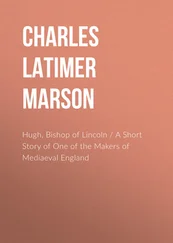Paul Vinogradoff - Villainage in England - Essays in English Mediaeval History
Здесь есть возможность читать онлайн «Paul Vinogradoff - Villainage in England - Essays in English Mediaeval History» — ознакомительный отрывок электронной книги совершенно бесплатно, а после прочтения отрывка купить полную версию. В некоторых случаях можно слушать аудио, скачать через торрент в формате fb2 и присутствует краткое содержание. Жанр: foreign_prose, Юриспруденция, История, foreign_edu, foreign_antique, на английском языке. Описание произведения, (предисловие) а так же отзывы посетителей доступны на портале библиотеки ЛибКат.
- Название:Villainage in England: Essays in English Mediaeval History
- Автор:
- Жанр:
- Год:неизвестен
- ISBN:нет данных
- Рейтинг книги:4 / 5. Голосов: 1
-
Избранное:Добавить в избранное
- Отзывы:
-
Ваша оценка:
- 80
- 1
- 2
- 3
- 4
- 5
Villainage in England: Essays in English Mediaeval History: краткое содержание, описание и аннотация
Предлагаем к чтению аннотацию, описание, краткое содержание или предисловие (зависит от того, что написал сам автор книги «Villainage in England: Essays in English Mediaeval History»). Если вы не нашли необходимую информацию о книге — напишите в комментариях, мы постараемся отыскать её.
Villainage in England: Essays in English Mediaeval History — читать онлайн ознакомительный отрывок
Ниже представлен текст книги, разбитый по страницам. Система сохранения места последней прочитанной страницы, позволяет с удобством читать онлайн бесплатно книгу «Villainage in England: Essays in English Mediaeval History», без необходимости каждый раз заново искать на чём Вы остановились. Поставьте закладку, и сможете в любой момент перейти на страницу, на которой закончили чтение.
Интервал:
Закладка:
The test of services.
Matters were even more unsettled as to customs and services in their relation to status and tenure. What services, what customs are incompatible with free status, with free tenure? Is the test to be the kind of services or merely their certainty? Bracton remarks that the payment of merchet, i.e. of a fine for giving away one's daughter to be married, is not in keeping with personal freedom. But he immediately puts in a kind of retractation 118 118 Bracton, f. 208 b.
, and indeed in the case of Martin of Bestenover it was held that the peasant was free although paying merchet. To tenure, merchet, being a personal payment, should have no relation whatever. In case of doubt as to the character of the tenure, the inquiry ought to have been entirely limited to the question whether rents and services were certain or not 119 119 Ibid., f. 200.
, because it was established that even a free tenement could be encumbered with base services. In reality the earlier practice of the courts was to inquire of what special kind the services and customs were, whether merchet and fine for selling horses and oxen had been paid, whether a man was liable to be tallaged at will or bound to serve as reeve, whether he succeeded to his tenancy by 'junior right' (the so-called Borough English rule), and the like.
All this was held to be servile and characteristic of villainage 120 120 Bract. Note-book, pl. 63: 'Dicunt quod idem W. nullum habuit liberum tenementum quia ipse uillanus fuit et fecit omnimoda uilenagia quia non potuit filiam suam maritare nec bouem suum uendere. 1819: R. de M. posuit se in magnam assisam Dom. Reg. in comitatu de consuetudinibus et seruiciis que Th. B. petit uersus eum, unde idem Th. exigebat ab eodem R. quod redderet ei de uillenagio per annum 19 den. et aruram trium dierum et messuram trium dierum … et gersumam pro filia sua maritanda et unam gallinam ad Natale et tot oua ad Pascha et tallagium et quod sit prepositus suus. Set quia illa sunt servilia et ad uillenagium spectancia et non ad liberum tenementum, consideratum est quod magna assisa non iacet inter eos, set fiat inquisicio per xii,' etc. Cf. 794, 1005, 1225, 1661.
. I shall have to discuss the question of services and customs again, when I come to the information supplied by manorial documents. It is sufficient for my present purpose to point out that two contradictory views were taken of it during the thirteenth century; 'certain or uncertain?' was the catchword in one case; 'of what kind?' in the other. A good illustration of the unsettled condition of the law is afforded by the case Prior of Ripley v. Thomas Fitz-Adam. According to the Prior, the jurors called to testify as to services and tenures had, while admitting the payment of tallage and merchet, asked leave to take the advice of Robert Lexington, a great authority on the bench, whether a holding encumbered by such customs could be free 121 121 Bract. Note-book, 281: 'Et Prior dicit quod in parte bene recordantur set in parte parum dicunt quia iuratores dixerunt quod debuit dare xii. den. pro filia sua maritanda, et debuit plures alias consuetudines et petierunt respectum ut assensum habere possent a domino Roberto de Lexintona utrum hoc esset liberum tenementum ex quo sciunt quid debuit facere et quid non et nullum respectum habere potuerunt.'
.
The subject is important, not only because its treatment shows to what extent the whole law of social distinctions was still in a state of fermentation, but also because the classification of tenures according to the nature of customs may afford valuable clues to the origin of legal disabilities in economic and political facts. The plain and formal rule of later law, which is undoubtedly quite fitted to test the main issue as to the power of the lord, is represented in earlier times by a congeries of opinions, each of which had its foundation in some matter of fact. We see here a state of things which on the one hand is very likely to invite an artificial simplification, by an application of some one-sided legal conception of serfdom, while on the other hand it seems to have originated in a mixture and confusion of divers classes of serfs and free men, which shaded off into each other by insensible degrees.
The procedure in questions of status .
The procedure in trials touching the question of status was decidedly favourable to liberty. To begin with, only one proof was accepted as conclusive against it—absolute proof that the kinsfolk of the person claimed were villains by descent 122 122 Example—Bract. Note-book, pl. 1887. Fitzherbert, Abr. Villen. 38 (13 Ed. I): 'Quia predictus J. nullam probacionem producit neque sectam et cognoscit quod ille est in seisina … de patre predicti W. quem potuit produxisse ad probacionem, consideratum est quod predicti W. et R. liberi maneant.'
. The verdict of a jury was not sufficient to settle the question 123 123 Bracton, f. 199. The jury came in only by consent of the parties.
, and a man who had been refused an assize in consequence of the defendant pleading villainage in bar had the right notwithstanding such decision to sue for his liberty. When the proof by kinship came on, two limitations were imposed on the party maintaining servitude: women were not admitted to stand as links in the proof because of their frailty and of the greater dignity of a man, and one man was not deemed sufficient to establish the servile condition of the person claimed 124 124 Britton, i. 207; Fitzherbert, Abr. Villen. 37.
. If the defendant in a plea of niefty, or a plaintiff in an action of liberty, could convincingly show that his father or any not too remote ancestor had come to settle on the lord's land as a stranger, his liberty as a descendant was sufficiently proved 125 125 Court Rolls of Havering atte Bower, Essex, Augment. Off. Rolls, xiv. 38. (Curia—die Jovis proxima ante festum St. Bartholomaei Apostoli anno r. r. Ricardi II, 21mo.) 'Inquisicio … dicit … quod non est aliquis homo natiuus de sanguine ingressus feodum domini, set dicunt quod est quidam Johannes Shillyng qui Sepius dictus fuerat natiuus. Et dicunt ultra quod quidam Johannes Shillyng pater predicti Johannis fuit alienigena et quod predictus Johannes Shillyng quod ad eorum cognitionem est liber et libere condicionis et non natiuus.'
. In this way to prove personal villainage one had to prove villainage by birth. Recognition of servile status in a court of record and reference to a deed are quite exceptional.
The coincidence in all these points against the party maintaining servitude is by no means casual; the courts proclaimed their leaning 'in favour of liberty' quite openly, and followed it in many instances besides those just quoted. It was held, for instance, that in defending liberty every means ought to be admitted. The counsel pleading for it sometimes set up two or three pleas against his adversary and declined to narrow his contention, thus transgressing the rules against duplicity of plea 'in favour of liberty 126 126 Fitzherbert, Abr. Villen. 32 (H. 19 Edw. II).
.' In the case of a stranger settling on the land, his liberty was always assumed, and the court declined to construe any uncertainty of condition against him 127 127 Ibid. 5 (13 Edw. I).
. When villainage was pleaded in bar against a person out of the power of the lord, the special question was very often examined by a jury from the place where the person excepted to had been lately resident, and not by a jury from the country where he had been born 128 128 Fitzherbert, l. c.: 'E ce issu fuit trie par gents de paiis ou le maner est e nemi ou il nasquist par touts les justices.'
. This told against the lord, of course, because the jurors might often have very vague notions as to the previous condition of their new fellow-countryman 129 129 Rotuli Parliam. ii. 192. Hargrave's argument in the Negro Somerset's case is very good on all these points. Howell, State Trials, xx. 38, 39.
.
Интервал:
Закладка:
Похожие книги на «Villainage in England: Essays in English Mediaeval History»
Представляем Вашему вниманию похожие книги на «Villainage in England: Essays in English Mediaeval History» списком для выбора. Мы отобрали схожую по названию и смыслу литературу в надежде предоставить читателям больше вариантов отыскать новые, интересные, ещё непрочитанные произведения.
Обсуждение, отзывы о книге «Villainage in England: Essays in English Mediaeval History» и просто собственные мнения читателей. Оставьте ваши комментарии, напишите, что Вы думаете о произведении, его смысле или главных героях. Укажите что конкретно понравилось, а что нет, и почему Вы так считаете.












